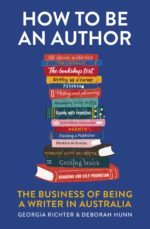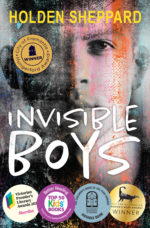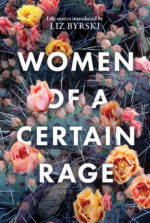Bianca Breen takes us into the Writer’s Room in her report from the Business of Being a Writer session at Perth Festival
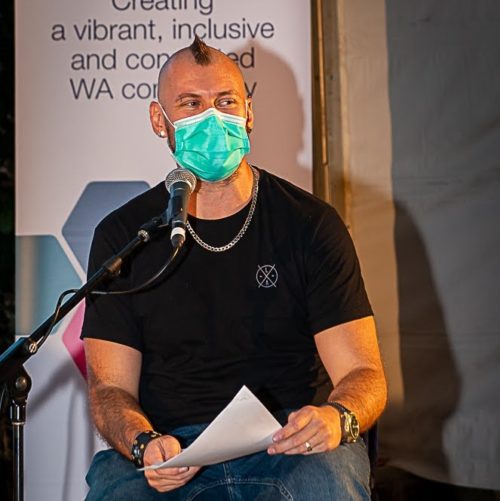
‘The Business of Being a Writer’ added another topic to its list of panel discussions this year: ‘In the Writers’ Room’. Moderated by Holden Sheppard, whose 2018 YA novel, Invisible Boys, is currently being adapted for television, the panel featured documentary filmmaker Victoria Midwinter-Pitt, director and screenwriter Ben Young and writer-director Maziar Lahooti.
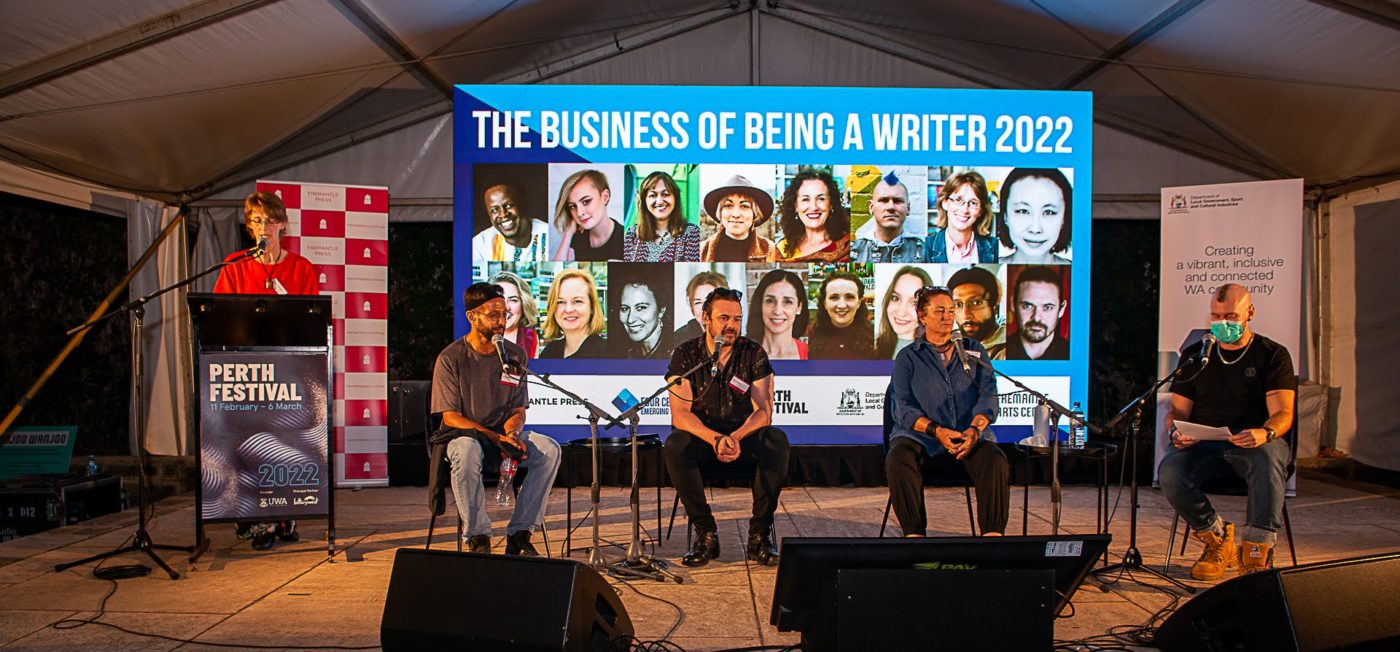
Victoria started the conversation with a discussion about being drawn to stories that teach her something and change the way she thinks about that subject, as well as stories that deal with justice. But capturing the truth in the filming of documentaries can be tricky. In her documentary Afghanistan: Inside Australia’s War, Victoria asked soldiers what they thought the war was about: ‘Those guys wouldn’t say they were laying down any kind of objective truth, but there’s something incredibly truthful in it. It is absolutely vital that the watches and listens, that we don’t turn away, that we give people the fullest possible chance, for better or worse, to tell us what is happening to them right now.’
I already knew scriptwriting and bringing stories to life on the screen was a complicated business, but hearing the panel talk about how difficult and rewarding the work can be was fascinating. Maziar spoke about his experience adapting the play Below into a movie script. ‘It was a process of problem-solving whilst managing to facilitate what it was Ian [Wilding, the playwright] was trying to say. Theatre’s very dialogue driven – long scenes, people coming and going – so a lot of Ian’s scenes took that structure. Trying to impose too much film stuff meant losing a lot of the [elements] I thought were cool. We eventually filmed it like a play, made it more dynamic; it helped to channel everything Ian was trying to do.’
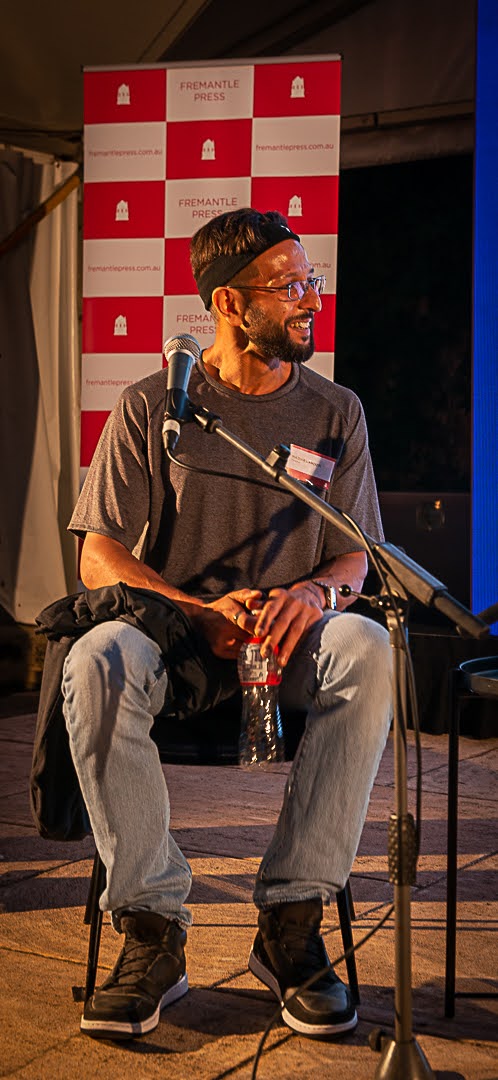
Ben spoke about his experiences working on television shows, and highlighted some of the crucial differences between TV and movie making, and how, broadly, writers have more control over the story in TV than movies. He talked about the joys of a (mostly) guaranteed go-ahead with television shows, as well as the frustration of episodic TV directors typically getting less recognition than movie directors.
The panellists were also keen to speak to their experiences in developing their early works. Like most skills, practice and experience seems to be the key to screenwriting. For unpublished screenwriters, winning a competition often doesn’t translate into selling a script (as it can sometimes happen with unpublished manuscripts). It also isn’t a case of going to university and emerging with everything you need. On degrees, Ben said, ‘I would call the degree I did a “film appreciation” degree, rather than teaching me any fundamentals. I got out of there and didn’t even know the basic principles of wants and needs when it came to character. I learnt all of that by writing scripts and trying to get money for them, and meeting smart people who taught me structure. It’s not a gift, it’s something you have to try and fail at.’
So what does a writers’ room actually look like?
Broadly, Ben said, ‘You have a showrunner, who is the head writer, standing at a white board guiding the whole room. There are four or five other writers in there and you literally bounce ideas around. Start with character – always start with the character – and start with the broad brushstrokes, then hone in. Plot the larger arc, each character’s arc, then break the board up into how many episodes there are, then start filling in the blanks.’ From there, the episodes are plotted in more detail by everyone in the room, a beat sheet is distributed and they go off and write a draft. Then, of course, comes the rewrites.
Documentaries will often have writers’ rooms, too. Most of the writing happens in an editing suite. ‘You will start in one place in terms of the film you think you want to make,’ said Victoria, ‘then as you actually see them begin to put it together, especially in the company of an editor – someone who hasn’t been on the journey from the beginning but who comes in with fresh eyes – that is often when the film actually gets made.’
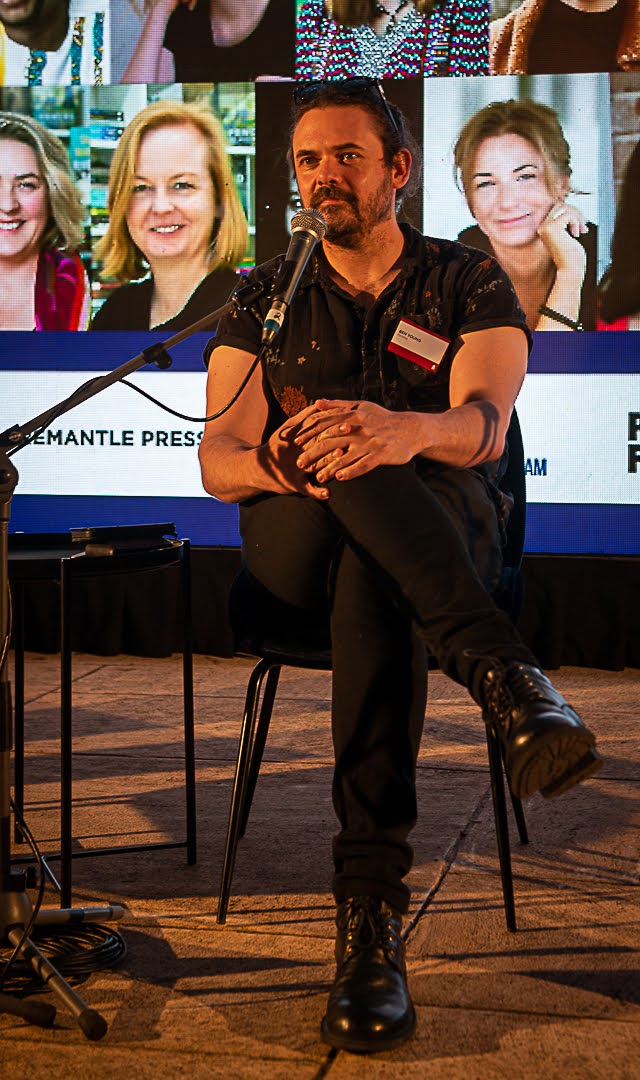
To conclude the panel, Holden asked for pieces of advice from the panellists, and they delivered. Victoria said to trust your own instincts, especially around those you work with, as writers rooms are a team effort, and Ben offered that ‘no one has raw talent – they have resilience.’ Maziar finished up with, ‘try to work with people who come to you through your work, and not for who they think you are.’
I really appreciated the chance to hear from three skilled and experienced screenwriters and their insights into the writers room; and while the development of scripts differs greatly from that of novels, the resilience and effort from the writer’s part seems to remain the same.
This panel session will be released later in the year on the Fremantle Press podcast. Subscribe on your favourite app so you don’t miss an episode.
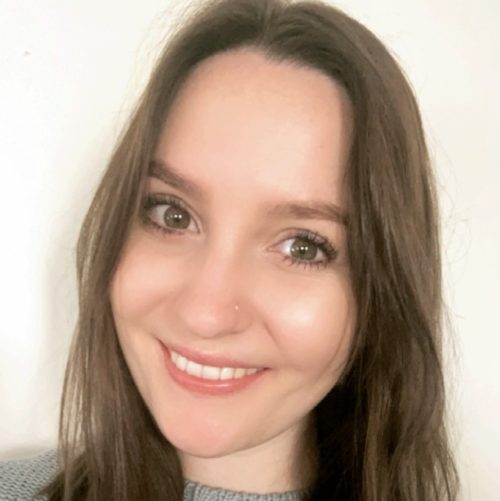
About Bianca
Bianca Breen is a volunteer at Fremantle Press and an emerging Children’s and YA fantasy writer with a passion for Australian authors and stories. She is the creator of YA for WA and a Social Media Champion at #LoveOzYA. She holds a BA of Creative Arts from La Trobe University and is one of the winners of the 2021 ASA/CA Award Mentorship Program.



